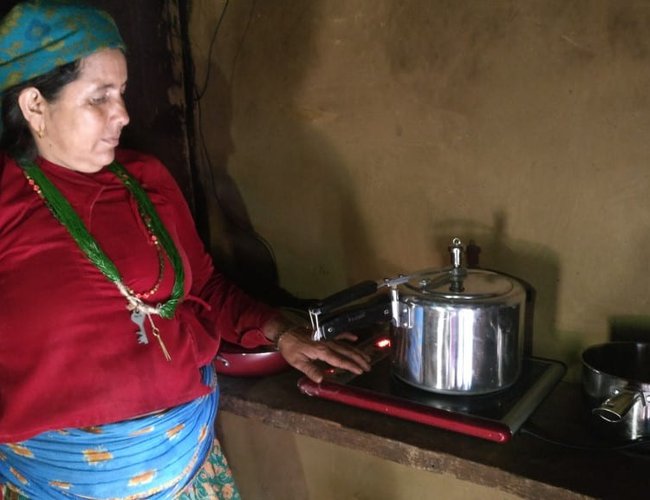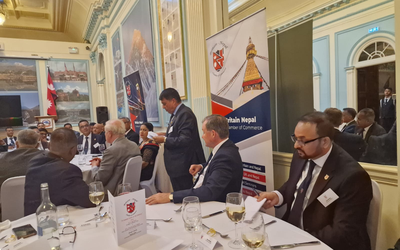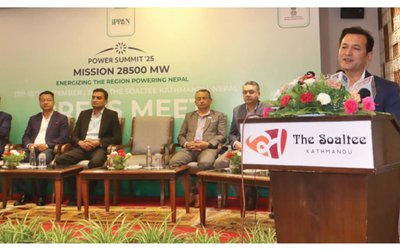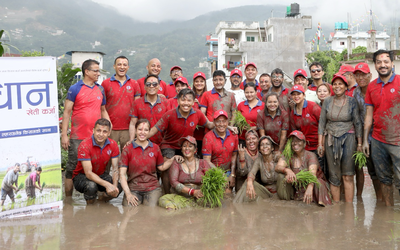
With the increasing demand for petroleum products including LPG on the global market, the pressure on foreign currency reserves is growing. As an immediate step, the government is coming up with a strategy aiming to encourage the urban population to go for electric cooking replacing LPG.
As the country has surplus energy currently and it will last till November, the government is considering to maximum use of electricity and other renewable energy as options.
With the instruction from the Ministry of Finance, the Ministry of Energy, Water Resources and Irrigation are drafting a guideline. According to the source in the Energy Ministry, the guideline is at the final stage.
As the Minister of Energy, Water Resources and Irrigation Pampha Bhusal has been campaigning to replace the LPG with electric cooking, the Ministry will likely send the draft of a guideline soon.
The Ministry of Finance has already discussed the issue with the Ministry of Energy and agreed to provide the necessary resources to upgrade the electric system in the required place.
In the last three months alone, Nepal spent over 70 billion to import petroleum products and one-third of the money was used to import the LPG. Along with electric cooking and renewable energy, the guidelines will also address the issue of charging stations for electric vehicles.
Even after exporting over 365 MW of electricity to India, Nepal still has surplus electricity during the coming few months. “Consuming surplus electricity is the only way out to minimize the use of Petroleum Products including LPG and release pressure on foreign currency reserve,” said Finance Secretary Madhu Kumar Marasini. “The current crisis is a global crisis and we all need to change the habit of not using imported things. “He also hinted that the government may provide incentives for the electricity and renewable energy like biogas.
At a time when the global oil prices have shown no sign of receding the price, Nepal will likely face problems in the payment of petroleum products within a few months.
Nepal imported cooking gas worth Rs52 billion in the first 10 months of the year amid calls for making kitchens electric. Nepal Oil Corporation has already proposed to provide the subsidy amount to the user of electricity.
Sushil Bhattarai, deputy director-general of Nepal Oil Corporation, said that the time had come to shift to electric cooking from LPG. “Prices are rising. We don’t know when this streak will end,” he said.
“We cannot afford to give subsidies on LPG. The price of LPG should be hiked as per the cost price. The government, however, can give subsidies to households to encourage people to shift to electric cooking,” said Bhattarai.
As the federal government is under pressure to maintain the foreign currency reserves, there is no specific program for provincial governments to promote electric cooking. Out of seven provinces, Gandaki Province has a clear stand on electric cooking and clean energy. Similarly, Karnali Province has announced to encourage renewable energy.
Other five provinces have vaguely addressed it. Given the intense pressure on the foreign currency reserve, the federal government’s new guidelines will encourage the province and local levels.
In the annual budget, the federal government has already announced to make Sub-Metro Cities and Metropolitan Cities free from LPG. Given the current energy crisis, the government will likely come out with guidelines for renewable energy electric cooking.
Some villages like Timal in Kavre and Mahakal Rural Municipality of Lalitpur have shown that electric cooking can minimize the use of LPG. The model used in the two rural municipalities can replicate in other areas too.
- India’s External Affairs Ministry’s Senior Officials Says Indo-Nepal relations are ever expanding
- Jul 05, 2025
- Bhutan Government Unveils Three Pronged Strategies To Tackle Skilled Migration Crisis
- Jul 05, 2025
- Weather Forecast: Generally Cloudy Across The Country With Heavy Rain At One Or Two Places Bagmati And Koshi Provinces
- Jul 05, 2025
- FNCCI President Dhakal Urges British Companies to Invest in Nepal
- Jul 04, 2025
- Nepal Is Expected To See 60,000 People Infected with Dengue This Year
- Jul 04, 2025















